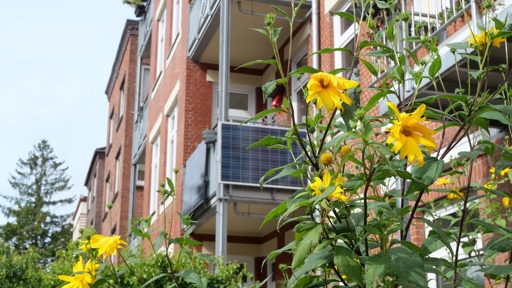cross-posted from: https://feddit.org/post/19852594
Edit: Be aware that some people try to post misinformation here, such as that such plants are not safe in the case of a power failure (untrue), or that they are not economical (untrue, their advantage is that they have very low installation costs).
Next best thing: German electric engineers to the rescue. Without regulations.
Black Panther MEME VDE/ISO “We don’t do that here”

With the next Revision of the ISO/VDE it can only get worse for this theme.
Except for my lab. In whichever, I do whatever I want to do.
Regulations were very careful in the beginning, but now it is that basically anyone can plug in a system like this and register it.
To note, there were some technical challenges, of course the plug needs to be safe when it is not plugged in, and the system switches off when the power fails, which is also for safety - these are not autonomous or “island” systems though of course, solar can be used for that.
City development à la North Korea.
explain?
In North Korea you need your balcony solar cells to power your phone because most households have no power lines. Germans pretty much copied this tactic when energy prices briefly went through the roof and it caught on. North Korea did it first and it‘s actually kind of sad people have to resort to such measures in a seemingly rich country like Germany because we‘ve made us very energy dependent when we were world leaders in renewables not long ago. There should be solar and wind parks everywhere by now but citizens have to take care of that themselves. It has a nice side effect of being less reliant on the grid but no balcony cell is gonna power your fridge for very long on it‘s own. It‘s just cheaper in the long run but it really shouldn‘t be. The government shouldn‘t have slept on it for so long.
What the fuck are you smoking?
Do you have a different opinion or was I not being clear?
lol, ok
So how good is it? I’m pondering a 400W panel but I have 2 balconies, one for the morning sun, one from around 11h…
These systems tend toward 800 watts for about $600. Pay off is generally 4-6 years. With solar panels lasting for 30+ yrs, you gain a degree of power independence and a rough income of $100-200/yr.
1200w setups are legal in Utah, so you may be able to get one of their systems in the states. Ecoflow has one called the ecoflow stream.
I know Germany have relaxed their laws but I’m in France, guess I have to wait until the “revolution” comes here.
Yes, in France the laws about these panels have actually become stricter last month. Big disappointment.
Ouch
In Germany you can get an 800W system, so two solar panels, a converter and cables for 250€. You usually need some sort of attachment as well, which is another 50€ or so. They are surprisingly cheap.
On top of that, you can now get used ones for about half the new prices.
By the way: One reason why electricity from the grid is relatively expensive in Germany is that private consumers pay much higher prices than large, power-hungry companies. Effectively, consumers are subsidizing companies, which in turn can often profit from very low prices for power from solar generation, because companies can buy from exchange markets at spot prices, but private persons can’t.
Balcony solar plants shift that tilted balance back a bit.
Good old Umverteilung, love it
And after all this, they still piss and moan about “prohibitively high energy prices”.
Next by the way: Access to these special prices for companies depends on the total amount of electricity used. Which adds a reverse-incentive: Under some circustamces it is cheaper to waste electricity in order to keep access to cheaper prices than to use less electricity. Because if you use less then you have to pay normal prices.
Ist es möglich dies Fähigkeiten zu erlernen?







